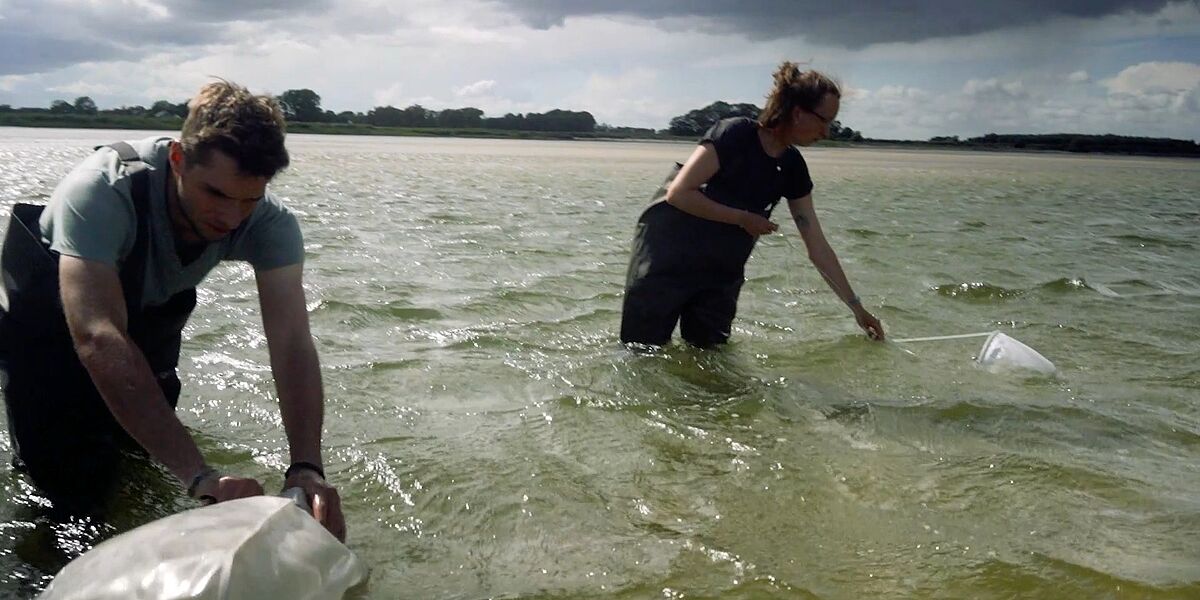Zulassungsvoraussetzung
Zugangsvoraussetzungen für den Masterstudiengang sind ein erster berufsqualifizierender Hochschulabschluss in einem bio- oder lebenswissenschaftlichen Studiengang oder in einem nahe verwandten Studiengang mit mindestens 50 % der Leistungspunkte des ersten berufsqualifizierenden Abschlusses aus dem biologischen Bereich zu Themen wie Zoologie, Botanik, Ökologie, Evolution, oder Physiologie.
Darum geht es in diesem Fach
Im Mittelpunkt des Studiengangs steht die organisisch-ökologische Forschung und Lehre. Besonderer Wert wird darauf gelegt, Veränderungen der Biodiversität zu verstehen, ihre Muster in Raum und Zeit zu analysieren und Lösungen für ihren Schutz zu finden.
Das erwartet Sie im Studium
Der Masterstudiengang "Biodiversity, Ecology and Evolution" soll die Absolvent*innen dazu befähigen, Probleme in Forschung und/oder Praxis selbständig zu erkennen, zu strukturieren und durch Auswahl und Anwendung geeigneter wissenschaftlicher Methoden zu beantworten. Während des Studiums erhalten die Studierenden eine breite methodische Ausbildung, die sowohl Feld- als auch Labormethoden umfasst. Es werden Kenntnisse in folgenden Bereichen vermittelt:
- Ökologische Feld- und Labormethoden
- Erfassung und Analyse der Biodiversität
- Paläoökologische Analysen
- Modellierung, GIS-Analysen
- Verhaltensanalysen, Telemetrie
- Morphologische Analysen (Histologie, TEM, REM, μCT, CLSM)
- Phylogenetische Analysen
- Populationsgenetik
- Umweltanalytische Methoden (TOC, HPLC, GC, GC-MS)
- Mikrobiologische Analysen, Immunologie
- Quantitative und molekulare Genetik
- Proteinbiochemische Analysen
- Datenbank-Management
- Statistische Analysen
Absolvent*innen dieses Fachs arbeiten in...
Die Berufsperspektiven für Absolvent*innen des M. Sc.-Studiums „Biodiversität und Ökologie“ liegen vornehmlich im wissenschaftlichen (Universitäten, Fachhochschulen, Forschungsinstitute), aber auch im sonstigen staatlichen (Umweltbehörden, Wasserwirtschaftsämter, Politikberatung, Museen, Botanische und Zoologische Gärten) und wirtschaftlichen Bereich (beispielsweise Gutachter- und Planungsbüros, Pflanzenschutz- und Nahrungsmittelindustrie).
Allgemeine Informationen zum Studiengang
Der Studiengang M.Sc. Biodiversity, Ecology and Evolution zeichnet sich durch ein hohes Maß an Flexibilität aus. Angefangen beim Studienbeginn, der sowohl im Winter- als auch im Sommersemester möglich ist, bis hin zur freien Wahl und Kombination der Wahlmodule. Dies ermöglicht eine persönliche Schwerpunktsetzung u.a. in den Bereichen Mikro-, Pflanzen- und Tierökologie, Morphologie und Physiologie. Darüber hinaus beinhaltet das Studienprogramm einen hohen Anteil an Übungen und Praktika im Labor und im Feld. Mit dem Mobilitätsmodul lassen sich Auslandsaufenthalte problemlos in den Studiengang integrieren.
Weiterführende Links
Fachbereich Biologie
Diese Seite hat die Kurz-URL: www.uni-greifswald.de/fach/biodiversitaet-msc


